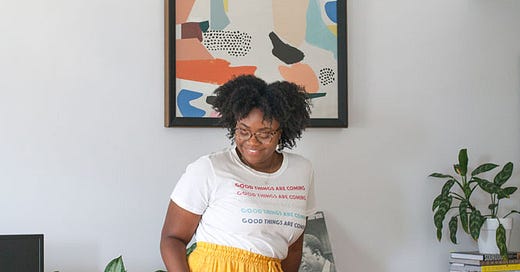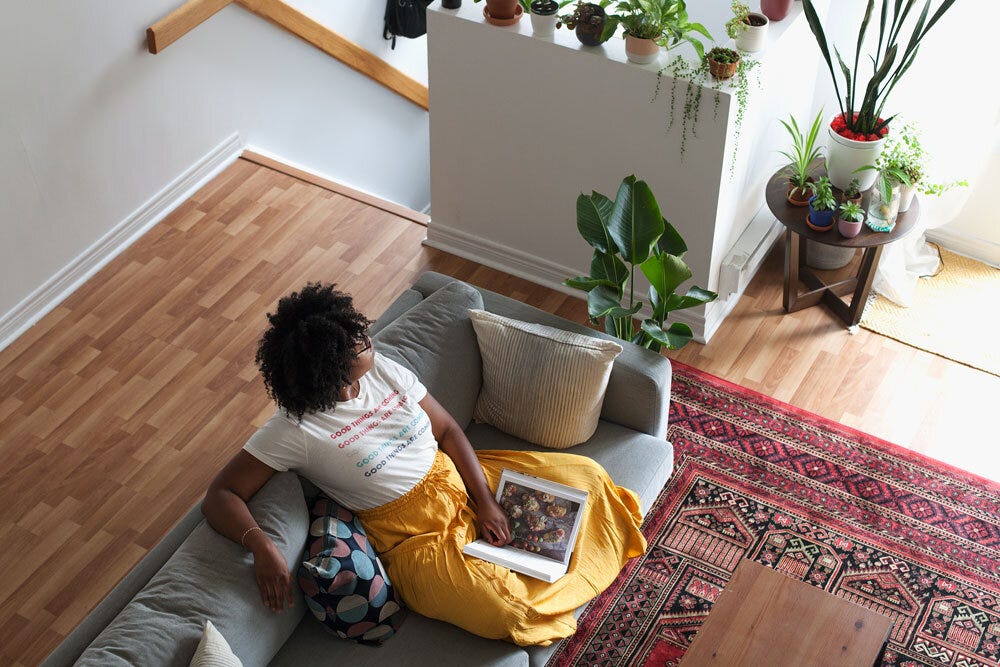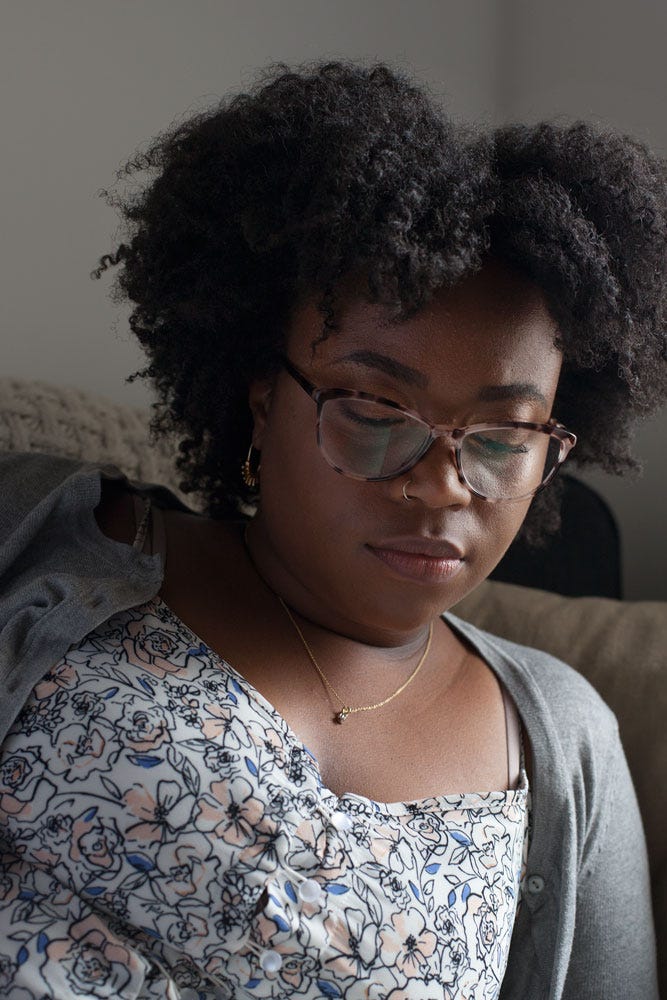Don’t let anyone tell you differently - being a black therapist isn’t easy.
I regularly reflect on my own journey as a therapist, and often consider how my personal and professional experiences have shaped my clinical practice. In 2020, and now - in 2021, I’ve been reflecting more often. Not solely because of the ongoing global pandemic, but because of the type clients I see and the work I do with them.
Therapy in my opinion, is like a dance. It is a close and intimate alliance between you and your therapist, moving as quickly or as slowly as you need to, learning and growing together with each step. It was not always like this. Therapy was not always as collaborative as it is now in 2021.
When I was just starting in my career, I learned that most therapists would never dare share their honest thoughts with a client. Even more taboo was sharing information about yourself. Disclosure was the enemy. No matter how relevant or therapeutic a disclosure discussion might be, a therapist was guided to be a tabula rasa or a blank slate. Therapists are to be neutral, my professors stated. To be a therapist is to not be too flashy and should avoid sharing their opinions. The main goal is to reflect, digest, share observations and teach skills.
I distinctly remember one of my graduate level supervisors making an “example” out of me during a lecture. She used me as an example of “what not to do'' when I arrived to class with a bold lipstick colour. This in her eyes at the time, was too much. Too flashy. Too distracting. In this universe, a therapist’s role was to not have a personality, or a distinct energy. That included red lipstick.
In fact, the message I received in grad school was that therapists were to be wise service-people without personhood: gently challenging unhelpful thoughts and actions, asking open-ended questions and assuming the power dynamic of knowing all and only sharing some. I believe this is a simplistic definition of traditional therapy (read: therapy defined by white supremacy), and I felt myself actively rebelling, pushing back, and showing up as myself; lipstick, opinions and all.
Black women are asked to fit into an impossible mold. At the time, I refused to shrink further under what I saw as eurocentric, removed and uncomfortable ways to interact with clients. Dr. Stanley Sue, a widely cited professor and researcher in multicultural psychology argues that ethical, culturally competent care needs more research. Research that includes the effect of cultural competency training in graduate level therapist training and education. Sue states that culturally competent care is a controversial subject in the psychological literature, and “ethnic and cultural concepts may clash with mainstream values inherent to traditional psychotherapies.” (Sue et al 2009).
In 2021, therapy looks and feels a lot different. The power dynamic of the all knowing therapist who shares nothing and expresses no opinion has been challenged, not just by me, but by therapists all over the world - in person and online. I see therapists working more collaboratively and honestly with their clients, and that includes authentic and open conversations about life, personal experiences, boundaries and personal growth. I see therapists sharing aspects of their lives, whether it’s disclosing that they have children, or talking about their own mental health journey. It’s not as taboo as it used to be. Careful consideration of the relevance and the necessity of disclosure will always be a part of the work, however more and more therapists are showing up fully as themselves.
“For black therapists in 2021, you become mentors and supervisors before you can even find one yourself.”
As a black woman, my journey to private practice was a long and winding road. I worked in treatment centres and hospital settings, where many of the clients were assigned to me by supervisors or intake departments. Clients didn’t have the choice or chance to choose me as their therapist, and I never chose my clients. The majority of my clients were white, and prior to my private practice, I could count on two hands how many clients I had who looked like me. More poignantly, over the course of my entire 10+ year career in Psychology and Psychotherapy, I’ve had only one supervisor that identified as Black. As my career grows, and more students, younger therapists and black women in the field connect with me for community, mentorship and support, I recognize a bleak truth: for black therapists in 2021, you become mentors and supervisors before you can even find one for yourself.
I have always felt secure in my identity as a black woman therapist, and continue to advocate for black mental health and culturally competent care. In my personal life however, I experience feeling othered and initially struggled to find other black therapists, black women or WOC for friendships and mutual collaboration. Being a Caribbean immigrant with no family living in North America is a deeply isolating experience. I’ve had to grow on my own. Learn to love on my own. Navigate systems on my own. At the time, I didn’t acknowledge how lonely I was, or how much I craved to feel connected with people who shared this experience. I was merely trying to survive. I now know that this is the reason community is one of my highest values. It is because growing up, I rarely felt like I belonged anywhere at all.
Learning and growing in predominantly white spaces was something I was used to, so stepping into private practice and entrepreneurship after leaving a toxic work environment, I was wholly unprepared for what came next. When I made my first public listing and opened up my practice, I was blown away by how many people had been looking for a clinician like me: Black, female, young (ish), with experiences of recent immigration and otherness. I began to see that there was a community of people who needed me that looked like me. I began to build real connections outside of the predominantly white institutions I had always existed in. This experience was extremely vulnerable for me. I would have sessions with clients that sometimes felt like looking in the mirror. I would hear stories of discrimination, otherness, and isolation that I knew all too well. We processed and discussed what it felt like to be unseen, to feel like you don’t belong. I started to meet and work with hundreds of amazing and successful black women, who struggled to see their own beauty and value in a sea of whiteness. At times, I would almost laugh out loud at how similar my life experiences were to my clients. I would see the visible relief on their faces on our first meeting, and hear them say “I thought I would never find you.” I would return home after sessions with my head swimming, wondering how I would discuss or process these experiences in supervision. What would I say? Did these clients somehow know I felt the same? Was it obvious that I deeply connected with their experiences? Still even in those early days, I wondered how safe it was to show up as myself in therapy.
In truth, my practice felt like it exploded overnight. I was warned that private practice was unreliable, and that building up a caseload would take months. I was told that finding clients who connected with you was harder than it looks. To be honest I didn’t, and still don’t have enough time to see everyone. These are good problems for my business, but they indicate a desperate and overwhelming need. Funnily enough, I myself did not even have a black therapist until very recently. I would go on Psychology Today and see pages and pages of white therapists, settling for whoever had the warmest face and the most ideal qualifications. The irony of this was not lost on me.
There is a common phrase amongst therapists - nothing is as effective in therapy as the therapeutic relationship. And here I was building relationships with clients who saw themselves in me. For many of them it was the first time they felt safe to show up and share about their lives, or to talk honestly about their families, their relationships and themselves. All my training, all my learning had left me so unprepared to deal with the unique challenges of: How do you separate yourself from clients when you also share in the oppression that they come to therapy to process?
“I realize now that before I found community for myself, my clients were finding community in me.”
My true answer came through building a network, which has been facilitated by the surge of online connections due to the pandemic. It only took me almost two and half full years after immigrating to Toronto to meet another black therapist. Then I met another, and another, and the network grew larger in a span of months. Black therapists who like me, may have been working in public or hospital settings set up shop online in the pandemic, hoping to be helpful in a time when mental health struggles seem to be at an all time high. Today, there are websites, directories, listings, google docs etc. out there that show how much they are needed. Many Black therapists including myself, have waitlists of people who are willing to wait to see us until our schedules open up, because they are finally demanding that they find clinicians who understand them. Anti-oppressive practices are becoming more mainstream for non-bipoc therapists, and people are holding them accountable for the role they play as providers and as people. It’s far from perfect, but it’s a reasonable start.
I realize now that before I found community for myself, my clients were finding community in me. I realize now that to be effective in therapy as a black woman and a therapist, I needed to not just show up authentically, but I needed to believe in myself. I’m still working on finding the right balance, and it’s hard to imagine a day when that learning comes to an end. There is still a growing need for therapists who identify as black, indigenous, people of colour. Mental health is more important now than it has ever been. We are still emerging out of the midst of a global pandemic, and navigating life while ongoing racial tension and oppression surge; increasing experiences of racial trauma, micro-aggressions and invalidation continue to be a reality for many, particularly Black Women.
It is still hard to find a good therapist, even with all the great changes around mental health stigma. Finding a therapist that feels right for you is a journey. Regardless of what they look like or where they come from, it is vital to ask any potential therapist about their competence in treating and understanding the experiences you need support with. Empower yourself to not settle for someone who hasn’t taken the time to unlearn how oppression and privilege can impact the work. Sometimes, despite how things look on paper, it may not feel right. Pay attention to these feelings and name them. We as therapists are here to help you understand and talk about the tough stuff.
I continue to reflect on my therapeutic boundaries, and engage thoughtfully in how much of myself I truly want to share with the world. I still get worried that someone will say: Why did you say that? Why would knowing about your identity matter?You should never have been so public about your own struggles. I am soothed and remember that for me, and for the countless black women out there who struggle with feeling seen, that it does matter. It makes a world of a difference to finally feel safe to be yourself and to work on your mental health, without worrying about whether you will have to accept that your therapist will never quite understand. It matters to see black women succeeding. It matters to know that you are not alone. It matters to recognize that what you experience is not uncommon.
To be frank, I love that I get to show up and be with my clients and witness their growth every day. It’s a gift and a pleasure. One I don’t take lightly. I’m learning to love the process of growing into myself as a clinician and as a person. I’m learning to embrace the messiness of being a human that doesn’t always have the answers, and yet is called to give them daily. It’s not a perfect process. There will always be mistakes, vulnerable moments, insecurity and more. I’m hopeful that there will be more therapists like me, called to share their full selves and heal collectively with their community.
Yes, being a black therapist is hard. Holding space is hard. Showing up is hard. However, I believe that doing these hard things can create momentum to change our profession back to a place of humanity, collective healing, and vulnerability.
Originally published in The Liv Collective’s flagship publication: Liv.
Published on Substack with additional edits.
You can find it here.





